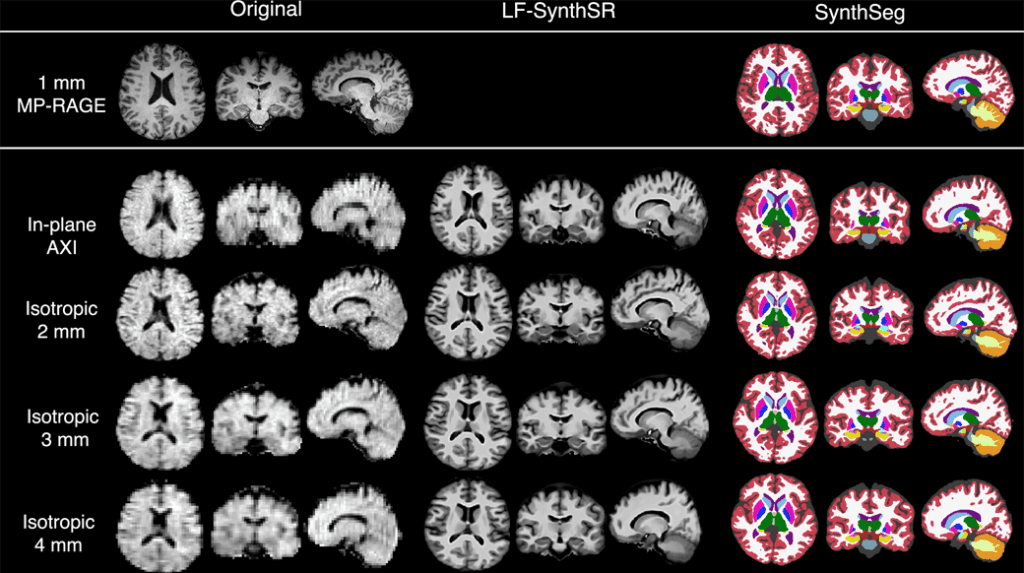
Of all the instruments in the modern medicine toolbox, magnetic resonance imaging, or MRI, is one of the most powerful. But in many regions, the expense, space, and expertise required to use it puts this tool out of reach. A new study suggests that, with a performance boost from artificial intelligence (AI), existing portable, low-cost MRI tech could make high-quality brain imaging available to more patients.
The new system employs AI techniques to improve the quality of, and then automatically analyze, images taken from low-field strength MRI devices that, due to being smaller, sacrifice image quality compared to conventional MRI machines. In a recent clinical study, researchers from Massachusetts General Hospital, Harvard Medical School, and Yale School of Medicine used their automated approach to detect Alzheimer’s disease markers in humans, finding that their technique performed at the same level as higher-power MRI. Their results, published in Nature Communications, point to the new method as a potential means of providing broad access to high-quality brain imaging.
